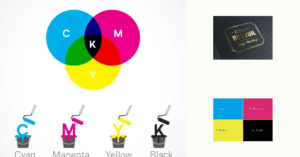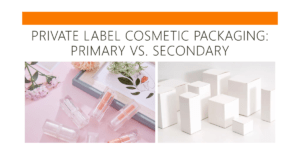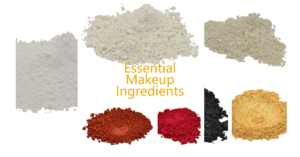Understanding Contract Manufacturing
Contract manufacturing plays a crucial role in the cosmetics industry as companies opt to outsource the production of their beauty products to specialized third-party manufacturers. This strategic approach allows cosmetics brands to focus on core aspects such as marketing and product development, while relying on the expertise of contract manufacturers for efficient production.
In the cosmetics sector, contract manufacturing involves a comprehensive process where a brand collaborates with a manufacturing firm to create its beauty products. This method encompasses every stage from product formulation to packaging, providing a convenient solution for companies seeking to expand their product line without having to make significant investments in facilities and equipment.
Table of Contents
Why Do Companies Opt for Contract Manufacturing?
Contract manufacturing is a business practice where a company outsources the production of its products to a third-party manufacturer. There are several reasons why companies opt for contract manufacturing.
One of the primary reasons is cost efficiency. By choosing contract manufacturing, companies can reduce the need for investment in manufacturing facilities and equipment. This can be particularly beneficial for startups or small businesses that may not have the financial resources to set up their own production facilities. Instead, they can rely on the capabilities and infrastructure of contract manufacturers, which can help to lower production costs.
Another advantage of contract manufacturing is the expertise that these manufacturers bring to the table. Contract manufacturers often specialize in specific industries or product categories, and they have the necessary skills and technology to produce high-quality products. By leveraging the specialized knowledge and capabilities of these manufacturers, companies can ensure that their products meet the required standards and specifications.
Flexibility is another key benefit of contract manufacturing. Companies can scale their production up or down based on demand without having to worry about capacity constraints. This is particularly important in industries where demand fluctuates or when companies are introducing new products and are unsure of the market response. Contract manufacturers can quickly adjust production levels to meet changing requirements, allowing companies to be more responsive to market conditions.
Lastly, contract manufacturing allows companies to focus on their core business activities, such as marketing and research and development (R&D). By outsourcing production to a contract manufacturer, companies can free up resources and concentrate on areas where they have a competitive advantage. This can lead to increased efficiency and effectiveness in these core areas, ultimately driving business growth.
In conclusion, companies opt for contract manufacturing for various reasons including cost efficiency, expertise, flexibility, and the ability to focus on their core business activities. By partnering with contract manufacturers, companies can benefit from their specialized skills and technology, reduce costs, and be more responsive to market demands.
Key Services in Cosmetics Contract Manufacturing
Cosmetics contract manufacturing offers a range of key services to brands looking to outsource their product development and production. One essential service is product development, which involves collaborating with the brand to create unique formulas that meet their specific requirements. This may involve formulating new products from scratch or tweaking existing formulas to achieve the desired results.
Another crucial service offered by contract manufacturers is ingredient sourcing. This involves identifying and procuring high-quality ingredients that meet the brand’s sustainability and ethical standards. Contract manufacturers may have established relationships with suppliers and be able to negotiate better prices and terms for their clients.
The manufacturing and production phase is where the final product is created. Contract manufacturers have the expertise and equipment to produce a wide range of cosmetic products, from creams and lotions to serums and makeup. They also have strict quality control procedures in place to ensure that every batch meets the highest standards of quality and safety.
Packaging and branding are also important services offered by cosmetics contract manufacturers. They can help brands design and develop packaging that is both functional and visually appealing, while also aligning with the brand’s identity. This includes everything from choosing the right materials and colors to designing logos and labels.
Overall, cosmetics contract manufacturing offers a comprehensive range of services that can help brands bring their products to market quickly, efficiently, and cost-effectively. By outsourcing their product development and production needs, brands can focus on their core competencies while leaving the technical details to the experts.
Selecting the Right Contract Manufacturer
When selecting a contract manufacturer, it is important to carefully evaluate their expertise, track record, and ability to meet specific needs. Brands should consider factors such as the manufacturer’s experience in producing similar products, their reputation in the industry, and their ability to provide customized solutions.
One key consideration when choosing a contract manufacturer is transparency. Brands should be wary of manufacturers who are not forthcoming about their processes, materials, or quality control measures. Lack of transparency can be a red flag that the manufacturer may not be operating ethically or may not be able to meet the brand’s standards.
Another important factor to consider is the manufacturer’s regulatory history. Brands should research any past regulatory issues or violations that the manufacturer may have had. This information can be found through government agencies or industry associations. Brands should also ask the manufacturer about their quality control processes and certifications, such as ISO 9001 or GMP.
Ultimately, selecting the right contract manufacturer requires careful consideration and research. By choosing a reputable and transparent contract manufacturer, brands can ensure that their products are produced to the highest standards of quality and safety.
Key Factors to Consider:
- Quality Assurance: Ensuring the manufacturer meets industry standards and regulations.
- Production Capacity: Their ability to meet your quantity demands.
- Experience in the Industry: Previous projects and reputation in the cosmetics field.
- Turnaround Time: Efficiency in production and delivery schedules.

MetaCNBeauty Private Label Cosmetics Contract Manufacturing Factory facility
The Process of Contract Manufacturing
Contract manufacturing is a process that involves several key stages to bring a product from concept to market. Here’s a detailed overview of each stage:
Product Conceptualization: This is the initial stage where ideas and formulations for a new product are developed. It involves collaboration between the client company and the contract manufacturer to brainstorm, evaluate, and refine product concepts. This stage often includes market research, identifying target demographics, and establishing product specifications and requirements.
Prototype Development: Once the product concept is finalized, the next step is to create prototypes or samples. These prototypes are essential for testing the product’s feasibility, functionality, and appeal. Feedback from these tests is used to make necessary adjustments to the product design or formulation.
Scaling Production: After the prototype has been approved, the process moves to scale up production. This involves transitioning from small sample batches to full-scale manufacturing. This stage requires careful planning to ensure that production capacity can meet demand without compromising on quality.
Quality Control: Quality control is a critical component throughout the manufacturing process, but it becomes especially important as production scales up. Rigorous testing and quality assurance protocols are implemented to ensure that each product batch meets the established standards. This may include testing for safety, durability, and performance.
Packaging and Branding: The product’s packaging and branding are key to its market appeal. This stage involves designing and producing packaging that aligns with the brand’s identity and resonates with the target audience. It often includes the creation of labels, boxes, and other packaging materials that reflect the product’s positioning and brand values.
Distribution: The final stage in contract manufacturing is the distribution of the finished product to the market. This involves coordinating the logistics of shipping, warehousing, and getting the product into retail outlets or directly to consumers. Effective distribution strategies are crucial for ensuring that the product reaches its intended market in a timely and cost-effective manner.
Each of these stages requires close collaboration between the client company and the contract manufacturer to ensure that the final product meets the desired specifications and quality standards.

Challenges in Contract Manufacturing
Clear and consistent communication between the brand and the manufacturer is essential to bridge any communication gaps. It is also important to maintain product quality across different batches, ensuring quality consistency. Navigating the complex landscape of cosmetic regulations is a challenge that requires regulatory compliance. To address these challenges, clear agreements and regular audits are necessary for quality assurance. Additionally, products must meet various international standards to ensure regulatory compliance. Effective communication and coordination between the brand and the manufacturer are vital to ensure that the final product aligns with the brand’s vision and quality expectations.
The Future of Contract Manufacturing in Cosmetics
The cosmetics industry is undergoing rapid evolution, driven by trends such as sustainability, the use of organic ingredients, and the demand for personalized products. In order to meet the dynamic needs of cosmetic companies, contract manufacturers must be adaptable and responsive to these changes.
The future of the cosmetics industry is being shaped by technological advancements like automation and artificial intelligence. These innovations have the potential to streamline production processes and enhance product quality. Market trends indicate a growing demand for sustainable and innovative beauty products, which bodes well for the future of contract manufacturing in the cosmetics sector.
Conclusion
Cosmetics contract manufacturing is an invaluable resource for brands looking to expand their product offerings efficiently and cost-effectively. By understanding its benefits, challenges, and future prospects, brands can make informed decisions to thrive in the ever-evolving beauty industry.

FAQs About Contract Manufacturing in Cosmetics
How do I ensure my contract manufacturer maintains my brand’s quality standards?
Regular quality audits, clear communication of standards, and selecting a manufacturer with a strong track record are essential.
Can small startups benefit from contract manufacturing?
Absolutely! Contract manufacturing can be particularly advantageous for startups, allowing them to leverage expertise and facilities without significant initial investment.
Are there eco-friendly contract manufacturers in the cosmetics industry?
Yes, many manufacturers now specialize in sustainable and eco-friendly production practices.
What is cosmetics contract manufacturing?
Cosmetics contract manufacturing is the process where a brand outsources the production of its beauty products to a third-party manufacturer.
How does cosmetics contract manufacturing benefit small brands?
It allows small brands to produce high-quality products without investing in manufacturing infrastructure, focusing instead on marketing and brand growth.
What should I look for in a contract manufacturer?
Look for a manufacturer with relevant expertise, a strong track record, and the capability to meet your specific product requirements.
How does contract manufacturing ensure product quality?
Quality is maintained through stringent quality control measures, regular audits, and adherence to regulatory standards.
Are there any risks involved with cosmetics contract manufacturing?
Risks include quality assurance challenges and ensuring that the product meets the brand’s vision and standards, which can be mitigated through clear communication and agreements.





